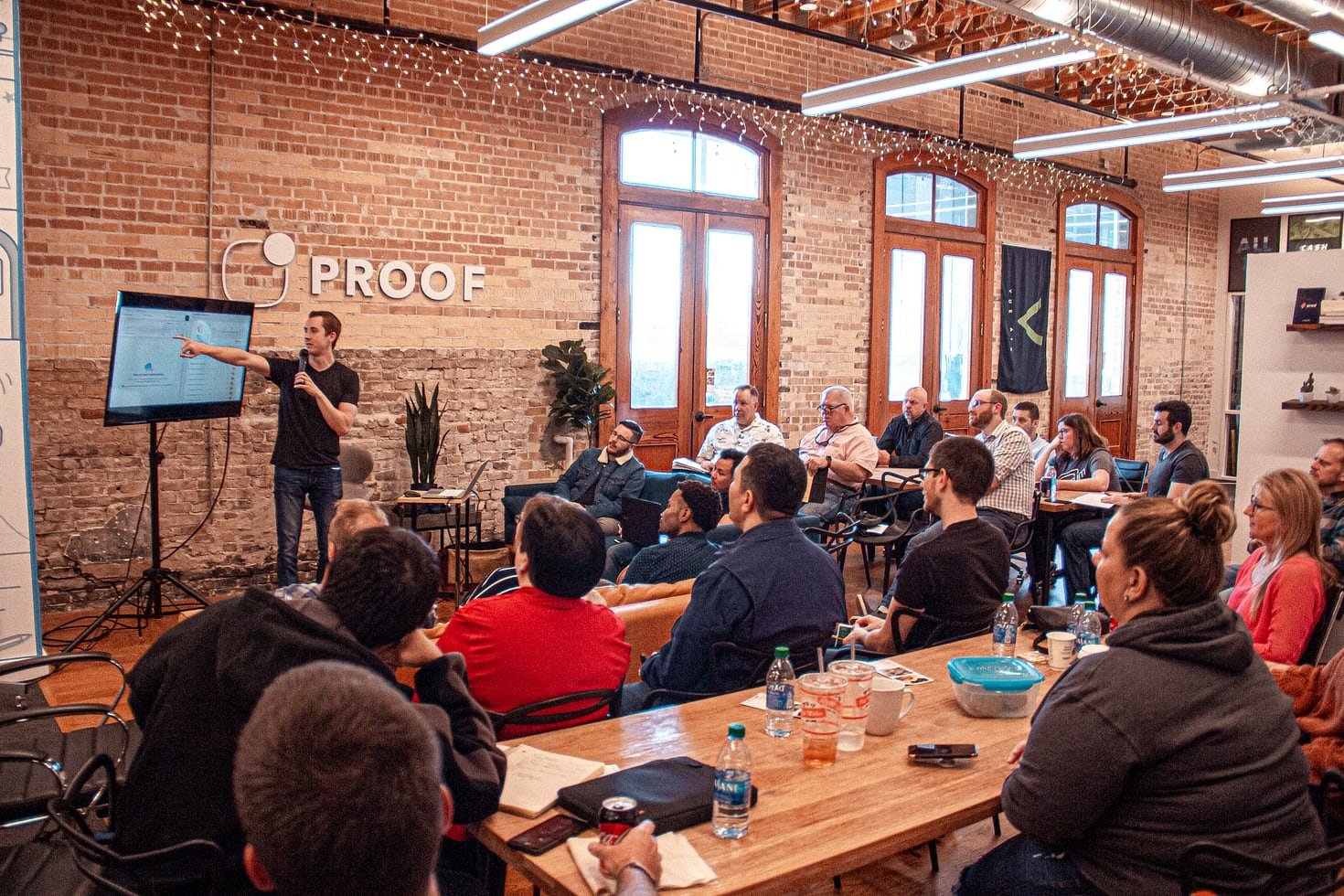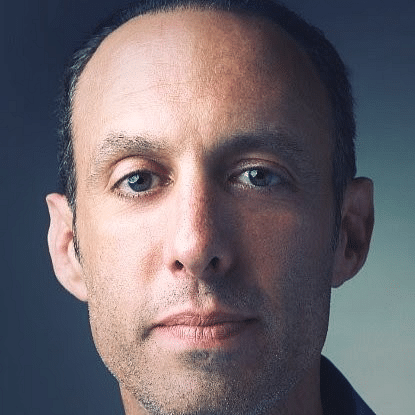
Want to get noticed? Here’s why you have to start connecting and get over your fear of being on stage
By Jim James, Founder EASTWEST PR and Host of The UnNoticed Entrepreneur.
I’ve known Richard Robinson for around 20 years now and he has been an entrepreneur for his whole life. We first met in Hong Kong where he started his career and he’s been a part of a string of startups. Together, we started the first chapter of the Entrepreneurs Organisation (EO) in Beijing.
Joining all the way from Bali, Indonesia, he shared in the latest episode of The UnNoticed Entrepreneur how he built multiple businesses and helped entrepreneurs around the world get noticed.
Image from LinkedIn
Joining Industry Groups
Many entrepreneurs come as failures. And the road to failure is absolutely treacherous and miserable all the time. However, this should prompt you to have a terrific attitude and look at it as a way to build up your skills, experience, and network.
Richard regards himself as a keen student of entrepreneurship. He tries to take whatever he could from each venture and bring it to the next. And one thing that he always brings from venture to venture is being part of industry groups, like what he did when he first started his career in Hong Kong in the mid-’90s.
For him, joining industry groups is an incredibly powerful way to establish your career. It can also be helpful later on as you enter new areas.
For instance, he’s currently involved in Web 3.0, which is a sub-sector of cryptocurrency. In this play-to-earn space, he found completely new friends. And similar to what he did around 30 years ago, he’s now starting an industry group to bring like-minded people together. He works with a young professional who helps him organise that and bring speakers and participants to their networking group.
Image from Unsplash
If you want to make a name for yourself and you’re in a place where there’s a lot of like-minded people in your industry, Richard also advises finding two or three things that you can cross over. For example, you can hold a networking event in London for people who are interested in e-commerce from China. Or an event in Singapore about social media for business-to-business (B2B) companies.
For the event, you need to start a newsletter and social media campaign. You can also do a fireside chat, which is a panel of sorts where you can be the moderator. You can ask your speakers two to three talking points — you can talk about their story, what they’re working on now, and what they see in the future. Then, you open a question-and-answer portion with the audience.
Through this, you can bring together a group of people from the industry who’ll be grateful for what you did. You’d become a node in the industry and you can get well-known and be seen as an expert for pulling together people around a specific topic. Most importantly, you can connect with senior people in the industry who are really making things happen. You can bond with them one-on-one, be with them on stage, and even open up opportunities for them.
Bringing out Your Inner Extrovert
As an entrepreneur, calling yourself shy and introverted is an excuse. According to Richard, you can practice so you can bring out your inner extrovert.
Many are afraid because they can’t be like someone who can stand up and speak. Or they might come off looking like Steve Jobs who, in the early days, was a lousy presenter.
He then cited a common friend named Benjamin Joffe who started Mobile Monday Beijing. Back when he was first introduced to him, he said that he was painful to watch and he didn’t think he ought to be on stage. And he’s never been on stage because he’s a little introverted, though he has a great personality. But for Richard, he has become the best presenter on the planet when it comes to hardware startups.
The key is, you just need to go out there and do it more.
The Problem with Public Speaking
Most of the time, people fail before they even start a company; people fail even before they get up on stage. The number one reason is fear of people and speaking in front of an audience. Statistically speaking, if you are to give a eulogy at a funeral, you’d much rather be in the box than behind the podium.
The leading problem in public speaking is not about people judging or dissecting you; it’s about people not paying attention and listening to you — it’s when you’ve lost them already.

Image from Unsplash
This is why you have to be you, times two. Meaning, you have to learn how to sell if you’re an entrepreneur. If you feel like you can’t do it, that’s because you haven’t done it enough. You have to sell to your investors, to people you’re recruiting, your customers, and your partners.
Even if you’re not an entrepreneur, you have to sell to your boss if you want to get that budget; you have to sell to your family; you have to learn how to persuade people and be able to tell a story. It’s a soft skill that Richard pushes really hard even in the Master of Business Administration program where he teaches.
It’s an important learned skill. Another learned skill that you need to have as an entrepreneur is staying calm when things are going wrong.
Deliberate Practice is Needed
When it comes to presenting, it’s not just about getting enough preparation. It’s deliberate practice.
You have to film yourself and watch yourself present. You also have to listen to other people telling you that you use particular words repeatedly; that your body language and the cadence of your voice are lousy; that you talk every second because you don’t want to have any silence, which would make you realise that you’re naked on stage. However, in reality, one of the most powerful things that you can say before an audience is nothing.
Once you get comfortable and you stand on the edge of the stage in front of a thousand people, then you throw some energy out there and say nothing afterwards — about 20% of your audience will look up and give you more attention.
And there are many more ways in which you can improve the way you present. These are things that you don’t learn in school. Even if you gain just a 1% improvement in your public speaking skills, you can already make a big impact. Doing things for your improvement is how you can become more comfortable in doing that. It’s not a sort of gift. It’s something you improve on.
Becoming an Industry Facilitator
Based on Richard’s experience, one of the most powerful things that he’s done is to see to it that he’s reaching out to an industry luminary who’s coming to town. Then, he sets up a meeting with them and other speakers that he’s previously gathered.
This is a good way wherein you can gain industry insights from them. If you can facilitate that, it will have a high impact.

Image from Unsplash
When it comes to public speaking, the worst part for him is creating bespoke presentations because it takes a lot of time. Especially when it’s your first time creating it and it’s a sales pitch, it won’t work so great.
In this aspect, he advises to simply build something up, offer some meat, and just practice. You could be just giving one slide or no slide at all. It’s sort of a stand-up comedy where you do smaller gigs; then you do a stadium show only after you’ve practiced.
Another thing that you can do is to be a moderator of a panel. This will allow you to coordinate with all the panelists.
If you’re early on in your career, you can go to an event and say that you want to put together a panel of this new, interesting angle of the industry. Suggest a list of speakers and yourself as the moderator, and give a list of topics.
When doing an event, take note that the most expensive thing is an empty seat in the panel. When you’re organising a venture, you might be working on getting people to the event, getting sponsors, and getting logistics done. But if you don’t know what’s going on in the industry, then you won’t be able to give some kind of meat. On the contrary, if you know an interesting angle, then you can reach out to relevant people and invite them as one of your panelists (Richard recommends getting three to four).
For the panel, you have to prepare three interesting talking points. However, it’s important to remember that when you’re moderating a panel, you’re not in a little league where everybody has to play. Not everybody has to answer a question. You’re not there to make everybody agree but to give meat to your audience.
You also don’t have to be an expert. You just have to be good at keeping things interesting and snappy. Being a panelist is a little bit easier because you can just show up and as long as you’ve prepared well, then you do a fireside chat.
On Emceeing and How You Can Leverage It
In terms of connecting with industry figures, Richard cited emceeing as the easiest thing to do. All you have to do is show up, greet the audience, introduce the panelists, bring energy, and tie the insights you got from today’s panelists to yesterday’s. You don’t even have to prepare because you’ll be given a clipboard.

Image from Unsplash
If you’re at a big event, you can meet people before the show starts.
What Richard did at a web summit in Lisbon, Germany attended by 5,000 people was to sit down with panelists backstage. He introduced himself as the emcee and gave a little background about him (he’s an entrepreneur then based in Beijing). During the conversation, he also asked about interesting things about the speakers that he could bring up (e.g. philanthropy they’re supporting, a passion they’re pursuing).
For him, it’s a great way to connect with people.
For instance, during the said event, someone approached him and said that they built up Qualtrics (which got sold to SAP for $8 billion). They shared that their two founders are on stage and their third founder is moving to Beijing. He was asked to help that founder land in the Chinese capital. Eventually, they became friends.
Understanding and Working on Your Strengths
Towards the end of the podcast episode, Richard suggested checking out PrinciplesYou. It’s based on the book called “Principles” by Ray Dalio designed to help you understand — and quadruple — your strength. There’s also a 30-minute video on YouTube that summarises the whole book in a high-end animation.
According to the test, he is an inspirer, entertainer, and impresario. And he uses all these skills to promote his companies as well as his personal brand, like what he did when he set up EO with me.

Image from Unsplash
If you don’t have the confidence to set up a whole new organisation, you can also take a group that exists somewhere else and be the host of that in your place.
For instance, Richard is currently running the Bali chapter of a blockchain networking group called Offchain. It was founded by Johnathan Hakim, with whom he started the group IandI back in the day. During that time, their organisation held events where they invited speakers and had hundred people showing up. Their attendees then included Jack Ma, who is now the richest man in China, and Charles Zhang, the founder of Chinese Internet company Sohu.
After spending 24 years in China, he’s also now in Bali to connect the country to Southeast Asia. He’s currently writing his first podcast and book called “At the Speed of China,” which is a play on “at the speed of light.” His thesis is that four years outside of China is one year in China because of how fast things are moving there.
To find out more about Richard, reach out to him on LinkedIn, Twitter, or at richrob@gmail.com.
This article is based on a transcript from my podcast The UnNoticed Entrepreneur, you can listen here.
Cover image by Andrea Piacquadio on Pexels



